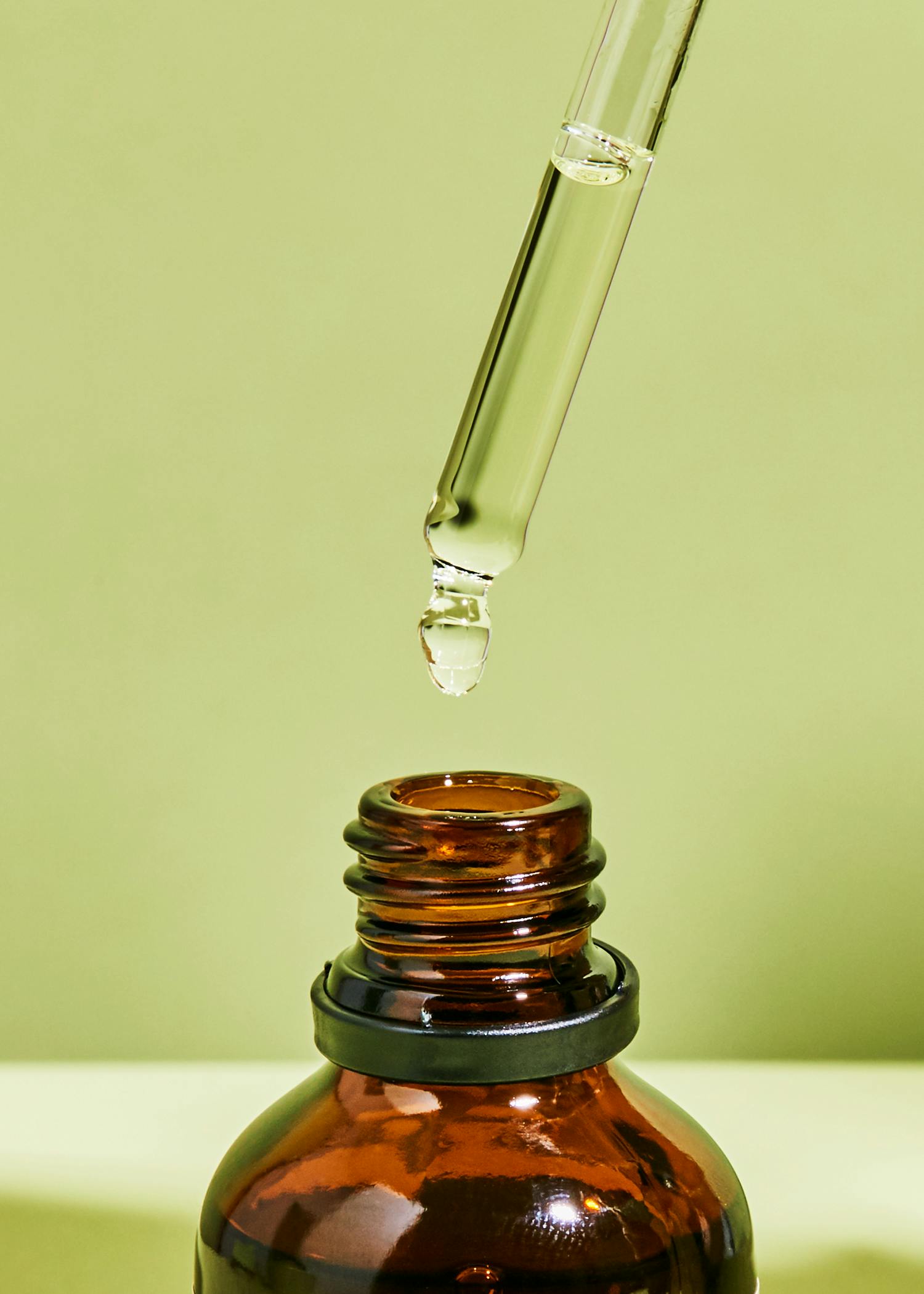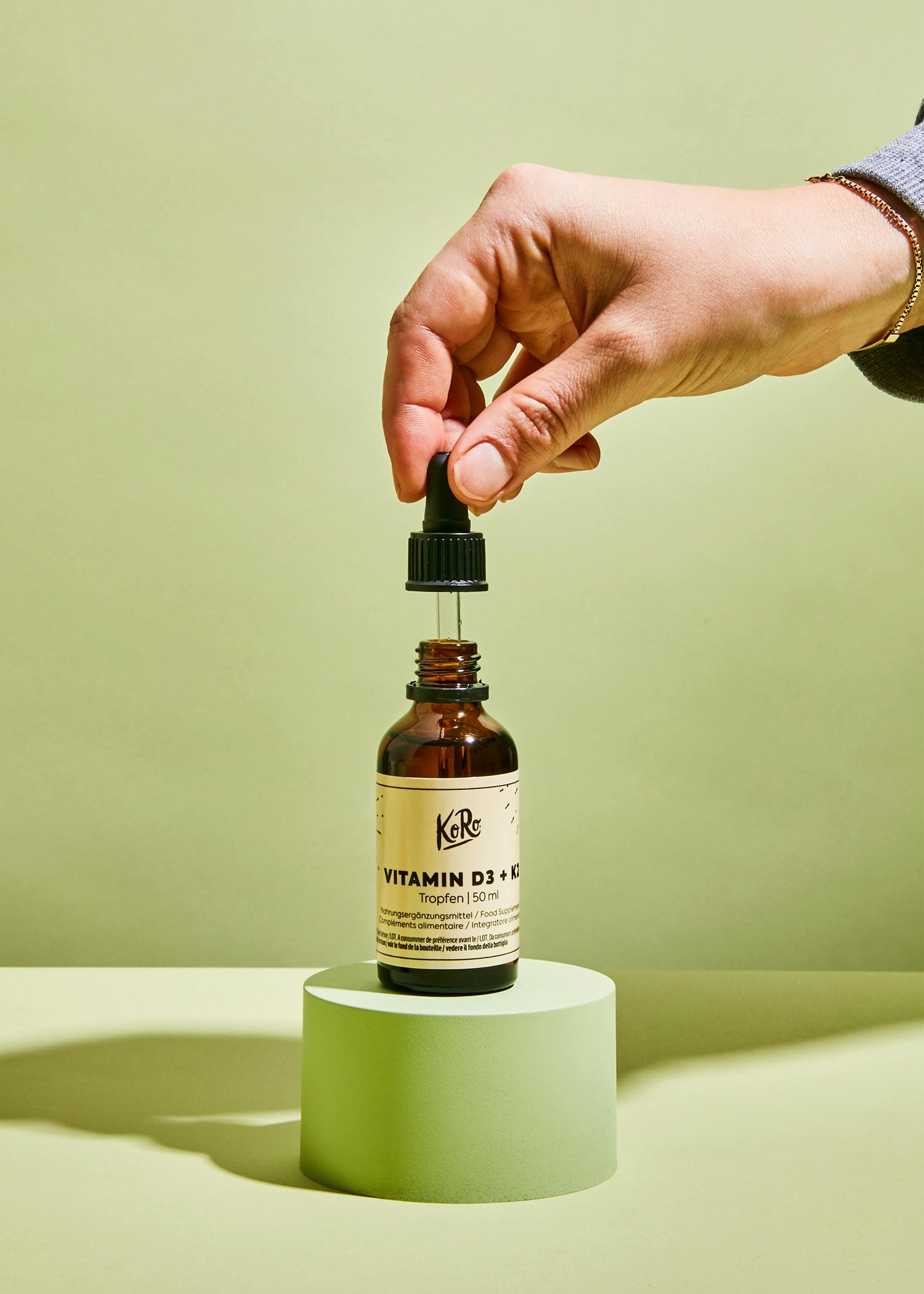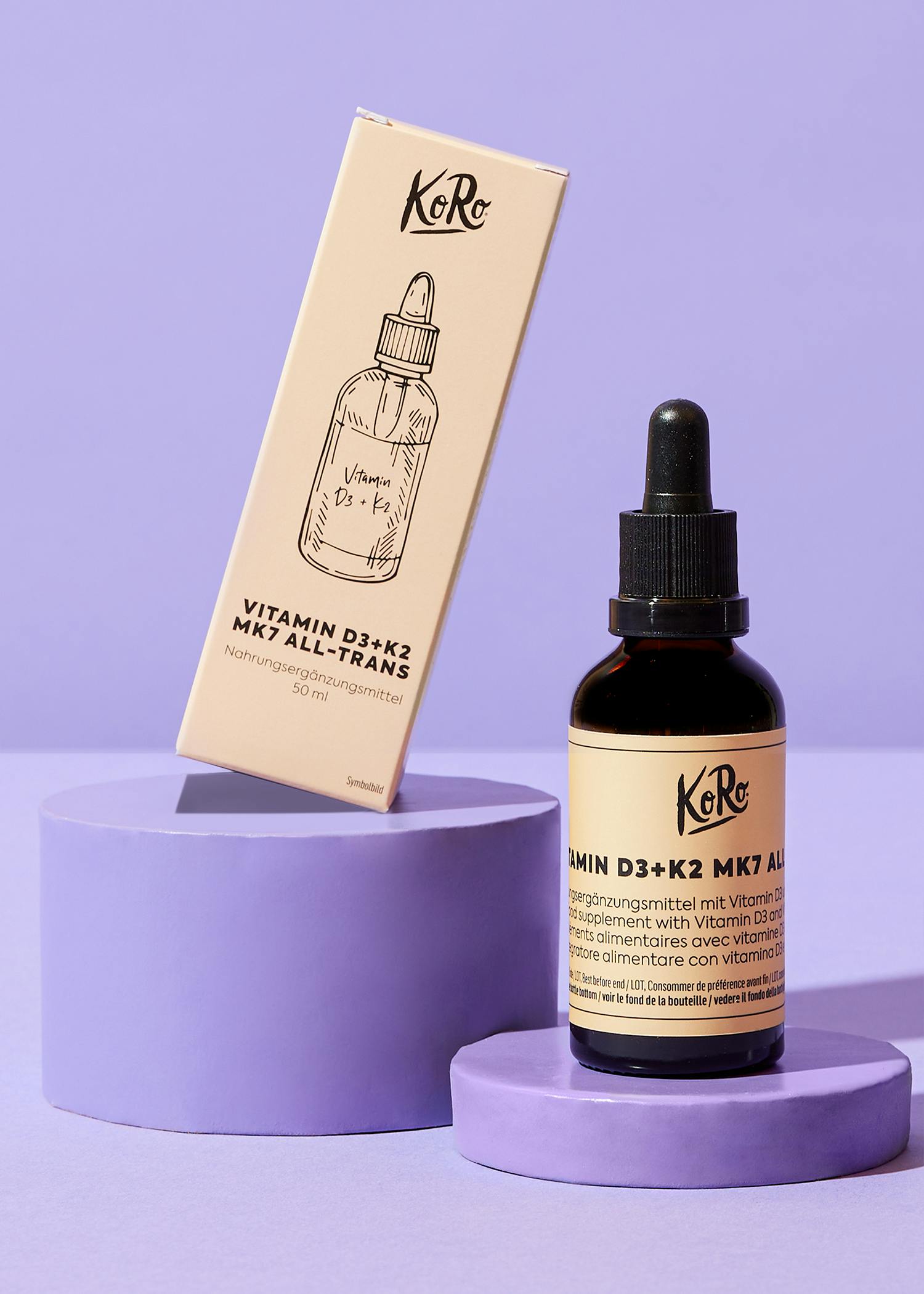What is vitamin D?
Fun fact: Vitamin D is basically not a vitamin at all, but a hormone. Unlike other vitamins, it does not need to be obtained from food, as the body can synthesize it itself under certain circumstances. Vitamin D contributes to the maintenance of normal teeth, bones and muscles and also plays a role in the immune system. Vitamin D also contributes to the normal absorption of calcium, which is also important for maintaining normal bones. So: Check your vitamin D status regularly!
Where do you get vitamin D from?
All good things come in threes - this also applies to the sun vitamin! Your body can get vitamin D from these sources:
Sun
The sun not only puts us in a good mood, it also gives us vitamin D. Our skin can produce vitamin D with the help of UV-B radiation from the sun. However, this requires a large area of skin - i.e. face, arms and legs - to be exposed to the sun for 5-25 minutes. The struggle: sun cream and protective clothing must not cover the skin. However, sun protection is super important for the skin, so try to avoid sunburn during your daily sunbathing.
The sunbathing thing is difficult in Germany anyway - at least from October to March - because either the sun doesn't shine at all or it's too cold to chill out on a picnic blanket in summer clothes. So make the most of the sunny days and take a short walk during your lunch break to soak up some vitamin D. Or simply take your afternoon coffee break outside in the sun - it's also a welcome change for the mind! The good news is that vitamin D can be stored in our fat and muscle tissue. This means that with sufficient vitamin D production in summer, we can usually get through the winter well.
Food
In addition, 10-20% of the vitamin D requirement can be covered by food. However, the sources here are few and far between and almost all animal-based: sea fish and eggs, especially egg yolk. Certain mushrooms are a plant-based source of vitamin D. But more and more foods such as plant-based drinks and protein powders are also being fortified with vitamin D to make it easier for you to get enough. Pro tip: Vitamin D is a fat-soluble vitamin. So combine foods containing vitamin D with a tablespoon of oil or a few nuts or seeds so that your body can absorb the small amounts of vitamin D from food.
Supplements
Otherwise, there are of course vitamin D supplements that you can take to ensure an adequate supply. In Germany, this can be particularly useful in the fall and winter. However, please pay attention to the recommended intake to avoid overdosing on vitamin D and consult your doctor if necessary. But whether animal, plant-based or supplement: time in the sun is the best way to go!

How much vitamin D do you need?
There's no general answer, as the dose to be taken depends on age, weight and skin color, among other things. In addition, scientists now agree that current recommendations for an adequate supply of vitamin D have been set too low. However, recommendations on how much you actually need to take are still being discussed. As you can see, giving yourself a dose of vitamin D is not that easy! However, it is clear that the blood concentration of the marker - attention, wild name - 25-hydroxyvitamin D is often not reached. To be on the safe side, it is best to have your blood vitamin D levels checked annually and take them to a trained nutritionist.
What happens with a vitamin D deficiency?
A deficiency can lead to a disruption in bone metabolism. This means that the bones become softer, increasing the risk of osteoporosis, especially in older people. You may also fall ill more easily, be chronically tired or your mood may suffer from a vitamin D deficiency - hence the colloquially known winter blues! Incidentally, there is a myth that vegans in particular suffer from a vitamin D deficiency. But even though vitamin D is considered a critical nutrient in a vegan diet, people with other diets can also be affected. We synthesize significantly more vitamin D from sunlight than we absorb from food. And how much you spend in the sun depends on lifestyle factors or where you live, not on your diet.
Vitamin D + K = dream team?
Vitamin K also plays an important role in bone metabolism. It is found naturally in green vegetables such as spinach, lettuce or cabbage, milk, meat and eggs. Some studies show: Vitamin D3 and vitamin K2 work even better together - which is why some supplements combine these two vitamins. But beware: the vitamins are both fat-soluble and can therefore be overdosed. So if your diet provides little vitamin K and you rarely spend time in the sun - or it is winter anyway - a vitamin D3+K2 supplement may be useful. As always, talk to your doctor beforehand to be on the safe side!


